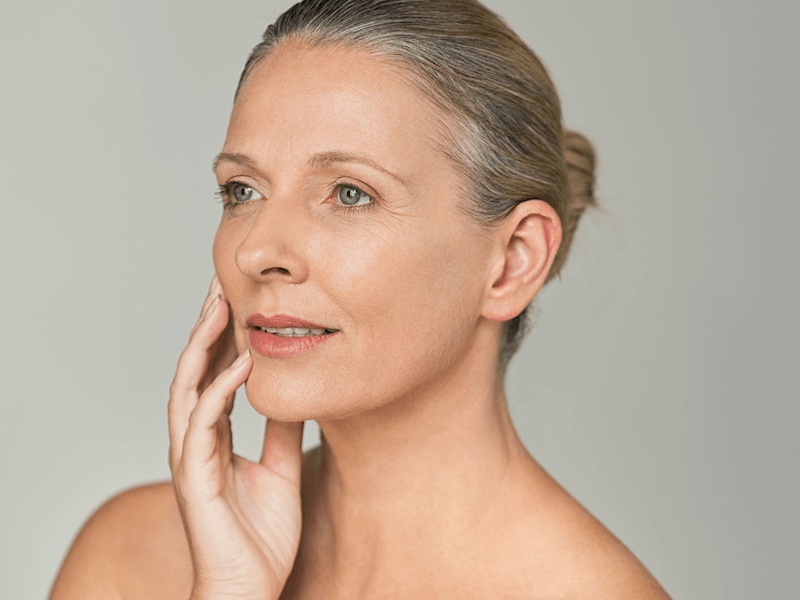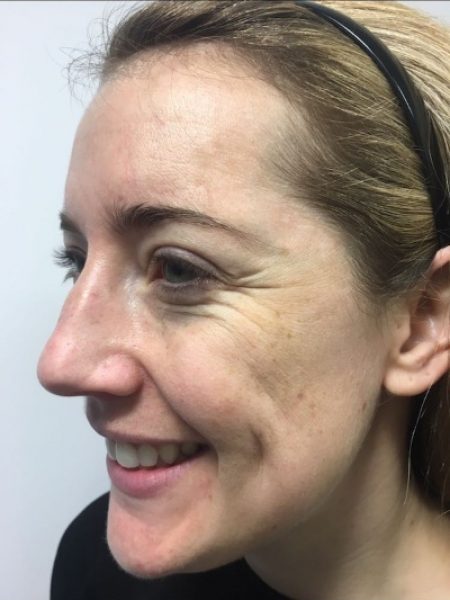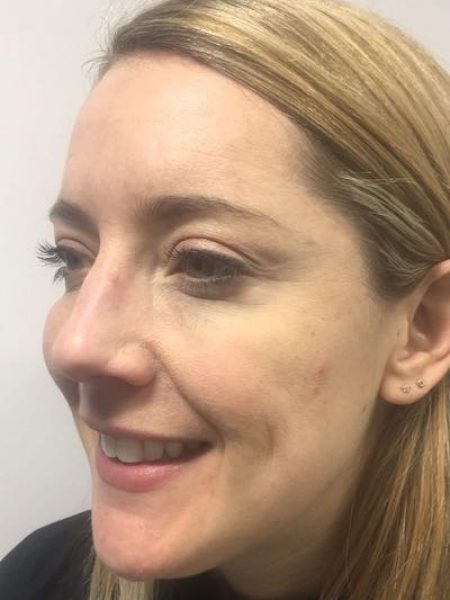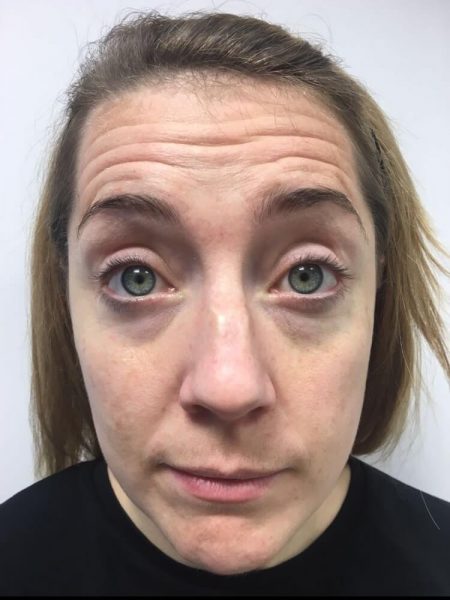Ageing
Skin
As we get older, our skin naturally changes in appearance and condition as part of the ageing process. Skin ageing includes the loss of collagen, elasticity and laxity, change in skin tone and texture, and the formation of fine lines and wrinkles.
0% Finance Options
Dermatology-Led
CQC-Registered
Complimentary Consultation
What is Ageing Skin?
As we get older, our skin naturally changes in appearance and condition as part of the ageing process. We can begin to develop wrinkles and fine lines and can experience pigmentation changes and growths. Pigmentation becomes more irregular with age-spots (brown in colour) and redness and thread veins (telangiectasia) can become more visible. The barrier function of the skin can also become less effective increasing the risk of skin disease and conditions.
Studies show that our skin can lose up to 1% of collagen each year. Collagen is a plentiful protein in our bodies, and the loss of it over time causes our skin to lose elasticity and volume.
This change to our skin is particularly predominant on our face, neck and hands.

What causes Ageing Skin?
There are a few factors that cause ageing skin and that can speed up the process:
- Intrinsic ageing of the skin is inevitable as our cells receive a reduced supply of nutrients and oxygen.The rate at which we produce epidermal cells slows which then affects the structure and function of the skin. This means that the skin thins and becomes less resistant to injury.
- The skin’s water content reduces meaning that skin is less able to retain water, resulting in dehydrated skin. Sebum production also reduces leading to additional dryness.
- The number of melanocytes reduces which can cause pigmentation.
- The body produces less collagen and elastin leading to the loss of skin elasticity. The volume of subcutaneous fat also diminishes, especially on the face, hands and feet.
- A large part of ageing skin is due to damage caused by solar radiation, otherwise known as ‘photoageing’. The dermis is damaged by UVB & UVA rays, whilst infrared radiation penetrates to the deeper dermis and subcutaneous tissue, where it may also contribute to sun damage.
- Smoking too can have a detrimental impact on the skin causing it to age faster. This is due to several factors; nicotine narrows the blood vessels which reduces the level of oxygen and nutrients that reach the cells. And, heat from burning cigarettes contributes to wrinkle development.
How do you treat Ageing Skin?
Prevention is better than a cure, so lifestyle changes can prevent premature ageing of the skin including the daily use of a sunblock (SPF50+ and greater), not smoking, avoiding excess alcohol consumption and eating a healthy and balanced diet.
However, London Real Skin offers a variety of treatments to aid in improving the appearance of the skin and slow down the rate of the ageing process. Here’s how:
We provide you with a personalised skin care regime based on medical-grade products including our very own London Real Skin ‘s vitamin-C serum, glycolic acid and hyaluronic acid that can all help the skin rebuild its barrier function. Long-term use of retinoid creams, Vitamin-C and products containing alpha-hydroxy acids have been proven to reduce fine lines on the face.
Medical-grade skin peels can help the skin become tighter and smoother through removing surface skin cells and stimulating skin renewal.
Dermal Fillers fill deeper lines and wrinkles on the face. The results are almost immediate and can last for up to 12 months.
Anti-wrinkle injections can improve the appearance of permanent dynamic lines such as frown lines. By limiting the muscles responsible for frown lines, crows feet and forehead lines, the muscles relax and the area becomes smoother and tighter. Results are normally seen within two weeks and can last for up to 4 months.
Laser treatments reduces fine lines and tightens the skin by removing the top layer of the skin and revealing fresher underlying skin. Specific laser treatments can also address pigmentation issues and redness.
This be used to remove lumps and bumps on the face including milia, lesions and skin tags.
What Causes Skin to Age Prematurely?
Whilst everyone’s skin will show signs of ageing as they get older, certain factors may cause your skin to age prematurely.
- Those who have had chronic sun or UV exposure are more likely to see premature ageing of the skin. This can include people who work outdoors.
- Tobacco smokers or those chronically exposed to other environmental pollutants are also likely to experience premature or more pronounced ageing of the skin.
- Premature ageing can occasionally be hereditary.
- For women, a loss of oestrogen during menopause contributes towards skin ageing usually beginning in the late 40s to mid-50s.
- Excessive alcohol consumption and a lack of a balanced diet can result in dull- looking skin and redness.
- Finally, dramatic weight loss and dieting can cause an increased volume loss in the face which can give the appearance of premature ageing.


Before & After



![Botox Forehead After[1] copy Botox Forehead After[1] copy](https://londonrealskin.com/wp-content/uploads/elementor/thumbs/Botox-Forehead-After1-copy-q7kc033h7tnq44tle7v7hwp3whnrem6vut04dber5s.jpg)

